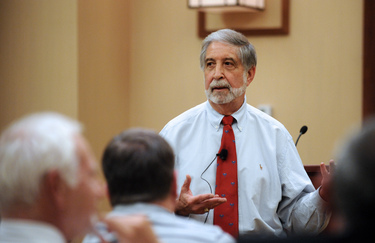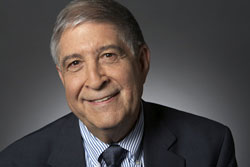
We hold the power to change our governmental system.
There is no more urgent task in American politics than to make fundamental change in how we govern ourselves.
Some will argue that other priorities are more urgent: creating jobs for the millions of our unemployed fellow citizens; making health care and education more affordable; improving the quality of our public schools; or any of a hundred other important matters on the public agenda, from national security to rebuilding our aging roads and highways.
No one can dispute the enormity of those tasks or the importance of addressing them as soon as possible. But without fundamental political reform, the likelihood that those concerns will be addressed promptly or wisely is minimal at best. Each of them, and many other less critical issues, demand thoughtfulness, a fair assessment of the root problems, and an honest consideration of alternatives – none of which is likely in a system in which the battle for party dominance trumps every other consideration.
So long as all the players in the decision-making process are focused on seeking out only those facts that support their predetermined positions, on ensuring that the presentation of other views is suppressed, and on eschewing compromise that might weaken one’s hand in the next round of elections, schools will continue to be inadequate and costly, health care costs will threaten to rob one’s entire lifetime savings, and jobs will continue to flow overseas.
To imagine a different kind of system, with more choice, more honest representation, and more focus on the collective (and individual good) than on what’s best for party insiders, seems beyond the imaginative capacity of a great many Americans. It will do no good for us simply to bemoan the inability of the federal government—our government—to serve our interests. We must also remind ourselves to regard each other simply as Americans—the bond we share—rather than as encampments of rival armies out to destroy each other.
Because incentives work, it is up to all of us to change them: instead of responding to the loud voices demanding intransigence, legislators should instead be answering to the large numbers of us who are increasingly demanding bipartisanship and compromise.
The late Steve Jobs insisted on the Apple iPhone campaign that urged people to “think different.” The correct usage would seem to be “think differently,” but Jobs had a point: to think “different” is a much greater inversion of the normal process. If we want to change the current political system, we’ll have to think different.
Changing the entire procedure in either the House or Senate is a difficult task, but insisting that your representatives act differently, and holding them accountable for doing so, is not difficult, and it should be done.
The system must be changed. The beautiful thing about our governmental system is that, in the end, the power to change it rests with us.
This essay in The Regulatory Review is adapted from Rep. Edward’s latest book, The Parties versus the People: How to Turn Republicans and Democrats into Americans, which was released this summer by Yale University Press. Last month, Rep. Edwards spoke about his new book in keynote remarks delivered at the Penn Program on Regulation’s conference, Regulation’s Impact on Jobs: Economic Analysis and Institutional Reform.




